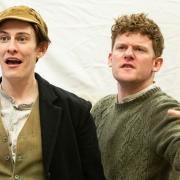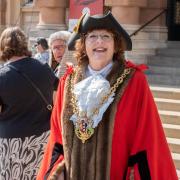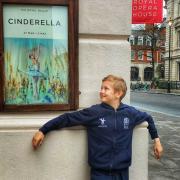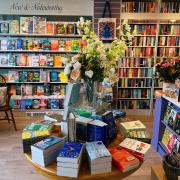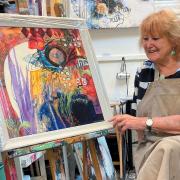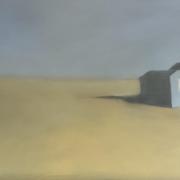Lucy Etherington discovers the company dedicated to giving young people a chance to explore their talents and enjoy making opera together

I saw my first Jubilee Opera production this summer at Snape Maltings, as part of the Aldeburgh Festival. After two sensible young choirs from London performed in neat rows, 30 kids of various ages and sizes charged up the aisles and ran riot on stage, turning a pile of apparent junk into a pirate battle while singing the complex harmonies of Benjamin Britten’s Golden Vanity. It looked so natural, so anarchic and exuberant, as though they really were just children playing, yet was clearly meticulously staged and choreographed.
The same exhilarating production of Golden Vanity will be shown again on October 7 as part of the Elizabeth Garrett Anderson centenary, and I urge you to see it. It’s a joy, especially because the children aren’t stage school brats, but normal Suffolk kids pulling off something extraordinary.
“The Golden Vanity isn’t performed that often because it’s so difficult,” Jenni Wake-Walker, the Jubilee Opera’s artistic director tells me. “Britten wrote it for The Vienna Boys Choir for the Aldeburgh Music Festival in 1967. Bear in mind these were professional musicians who went all around the world, whereas we are just a group of ordinary Suffolk schoolchildren.” This is the skill of Jubilee Opera. They take a bunch of local kids and train them with professional voice coaches, conductors and directors. On the website, the company’s aim is “to give children with little opportunity elsewhere the chance to discover their own abilities and to develop their musical and performance skills, thus engendering a lifelong love of the performing arts.”
Jenni sometimes recruits children from schools, but more often than not, she says, they find her. An audition is held annually for each new production, but it’s not the X Factor. Most will be cast if there is a role they can grow into.

“They come mainly from state schools, from all walks of life,” says Jenni. “It’s usually parents who get them involved and they often have an interest in music or theatre. But each child has their own unique contribution. Not everyone wants to sing, we’re not a choir. Opera is about telling a story, not singing operatically, and there’s lots that needs to be done on stage. If a child is less confident about singing, they can concentrate on acting, directing or production. There’s no showboating – we don’t do Annie. Every child knows that what they contribute is intrinsic to the whole.
“We have one little boy who stage manages in The Golden Vanity, while sitting in the middle of the stage being the pirate cat with a fishing rod. He lost his confidence because a friend told him he can’t sing. But here he has an important role, centre stage, moving props around. Over time, he will get his confidence back.”
The vocal training, however, is hugely important to Jenni, a singer and musician herself. Crucially the children are taught to use and strengthen their voices without microphones.
“Children often copy pop stars, singing from their throats which is terribly damaging,” says Jenni. “It’s wonderful when they discover their own voices and learn to use them properly. It gives them so much confidence and it’s a skill they can use throughout life.”

Indeed, many former alumni of the Jubilee Opera have gone on to great things, including Jenni’s son Frederic Wake-Walker. Now artistic director of the internationally renowned Mahogany Opera Group, he still finds time to come back and direct the occasional Jubilee Opera production.
Although Jubilee Opera doesn’t exclusively perform Britten’s work – they have also staged Hans Krasa’s Brundibar, works by Malcolm Williamson and many other composers – it began with a children’s production of Noye’s Fludde in Aldeburgh Church in 1987, to raise money for the roof.
“The enthusiastic response made us want to create more events like it,” explains Jenni. It has been through various fluctuations, gathering steam around Britten’s Centenary celebrations and has gone from strength to strength. In the future, they hope to be part of plans to expand the youth platform at the Jubilee Hall, perhaps reviving the Saturday Club. What’s so remarkable, considering the talent they manage to call in, is that Jubilee Opera is entirely free for the children taking part. Lucky them. This is thanks to Jenni’s hard work behind the scenes, fundraising and developing partnerships. Jenni also credits her “wonderful team of volunteers” who are so committed to the welfare of the children and to pitching in with all aspects of productions.
It’s an enormous project and clearly a huge commitment and passion for Jenni, who came to Suffolk in 1973 specifically to work for the Aldeburgh Festival when Benjamin Britten was still alive.

“I worked very closely with Britten and Pears, booking artists and organising the festival programmes,” she recalls. “They were warm, wonderful people and so inspiring. Working with them changed my life. The work Britten did with young people was very dear to his heart and we like to think we are carrying on his legacy. He would have loved Jubilee Opera.”
For more info: www.jubileeopera.co.uk







